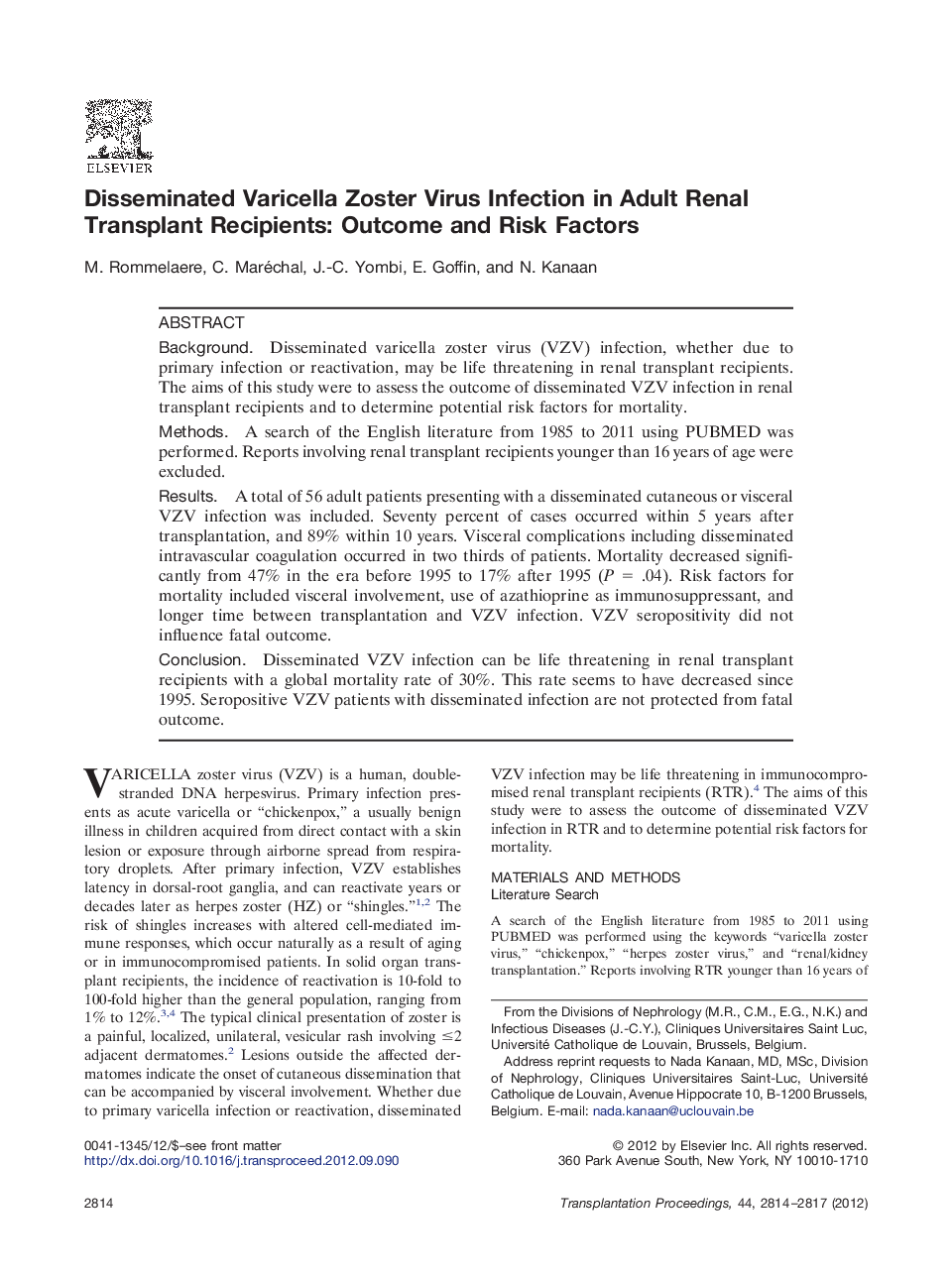| Article ID | Journal | Published Year | Pages | File Type |
|---|---|---|---|---|
| 4256332 | Transplantation Proceedings | 2012 | 4 Pages |
BackgroundDisseminated varicella zoster virus (VZV) infection, whether due to primary infection or reactivation, may be life threatening in renal transplant recipients. The aims of this study were to assess the outcome of disseminated VZV infection in renal transplant recipients and to determine potential risk factors for mortality.MethodsA search of the English literature from 1985 to 2011 using PUBMED was performed. Reports involving renal transplant recipients younger than 16 years of age were excluded.ResultsA total of 56 adult patients presenting with a disseminated cutaneous or visceral VZV infection was included. Seventy percent of cases occurred within 5 years after transplantation, and 89% within 10 years. Visceral complications including disseminated intravascular coagulation occurred in two thirds of patients. Mortality decreased significantly from 47% in the era before 1995 to 17% after 1995 (P = .04). Risk factors for mortality included visceral involvement, use of azathioprine as immunosuppressant, and longer time between transplantation and VZV infection. VZV seropositivity did not influence fatal outcome.ConclusionDisseminated VZV infection can be life threatening in renal transplant recipients with a global mortality rate of 30%. This rate seems to have decreased since 1995. Seropositive VZV patients with disseminated infection are not protected from fatal outcome.
